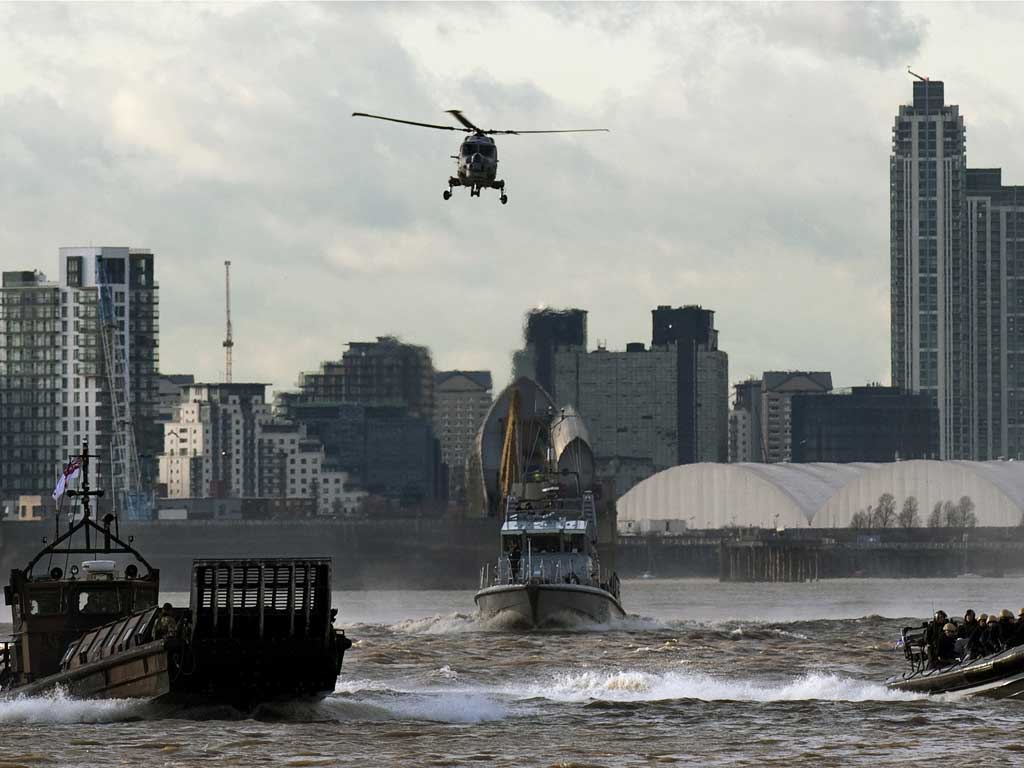Games will be al-Qa'ida target, says Europol
Intelligence agency believes terrorists want to make a symbolic strike after Bin Laden's death

European terrorism experts are warning that al-Qa'ida may be planning an assault on the London Olympics in a bid to "maximise their impact" in 2012.
Europol, the European Union's criminal intelligence agency, has singled out the Games as a "major event" that could be targeted for its symbolic value, in its latest review of terror threats.
Security experts have cautioned that a successful large-scale assault could rejuvenate an organisation whose profile has been diminished by the death of its leader, Osama Bin Laden, last year.
Europol notes that al-Qa'ida has concentrated on a strategy of "individual jihad" in recent years. But it also warned that the organisation aimed to stage assaults that would "cause mass casualties" and wreak a "psychological impact" that would have "a long-term negative effect on society".
The chilling comments in the agency's report amount to the latest of a lengthening list of credible warnings of threats to the Games, which begin in two months' time.
The Independent on Sunday has also established that the United States is warning that Britain faces a major cyber assault from organised crime gangs and protest groups targeting the Olympics. A report from the Department of Homeland Security says email scams, the use of malicious software and attempts to hack into systems "will continue to grow in scale and complexity as the 27 July opening ceremony in London draws near".
The Government has ploughed millions of pounds into security to protect competitors and spectators. Measures include surface-to-air missiles stationed on top of high-rise flats, more than 13,000 troops and a weapon that disperses crowds by creating "head-splitting pain".
Transport Minister Mike Penning, in Taiwan last week, said he was not overly concerned that the high-profile measures, including a warship in the Thames, might deter some people from attending the Games.
But the man who drew up the original security strategy for the 2012 Games last night said there would, inevitably, be gaps in protection – notably on transport networks where it is more difficult to control access.
Tarique Ghaffur, who acted as head of security planning for the London Olympics when he was assistant commissioner of the Metropolitan Police, said: "Public events like this have always been key targets, but the game has changed since 9/11.
"I would be very confident about the security services' ability to control and protect the main venues. But... the secondary activities and open systems are always, in terms of risk and threat, an open target."
Europol highlighted other concerns – including "returning jihadists" and the "solitary" terrorists considered one of the greatest threats to EU security. But it also concluded that al-Qa'ida remained a significant threat: "The efforts of al-Qa'ida-affiliated or inspired terrorists are likely to remain concentrated on attacking their long-standing targets in EU member states and may seek to capitalise on major events such as the London Olympics to maximise their impact."
The US report details how British law enforcement has been collaborating with US counterparts to fend off threats. With an IT staff of more than 5,000 – of whom half are volunteers – there is "potential for insider attacks", the report warns.
London's defences are said to include 48,000 staff from security forces and 13,500 troops, and a "safe zone" cordoned off by an 18km electrified fence, patrolled by 55 teams of attack dogs.
The London Olympic Games Act gives the police sweeping powers to clear key areas, demonstrations and individuals deemed to be guilty of anti-social behaviour.
Subscribe to Independent Premium to bookmark this article
Want to bookmark your favourite articles and stories to read or reference later? Start your Independent Premium subscription today.
